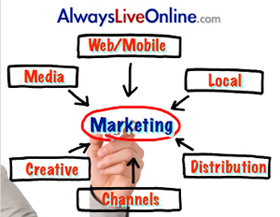Facebook use linked to depressive symptoms
Being in the digital marketing space for over ten years, changes occur daily and breakthroughs more often than any other industry. This is cause for great change and creativity in the human condition. An ongoing test to stay connected as people and not allow the advancements to drive us to isolation. We are in a time of flux and change is thrust upon us almost daily. Being a part of this time of enlightened engagement is exciting, however, we do need to find a way to balance some of the effects of a societal sea change.
This is an amazing piece of data driven opinion Media Crush has aggregated, sliced and diced and commented upon to help spread the good, bad and hopeful POV concerning the state of Facebook usage and supposed health outcomes…Let us know what you think of Dr Mark Wiley’s state of the state.
It is our opinion that Dr Wiley is pretty right on with his breakdown of the topic and does present the research to back it up.
Recent research by the University of California, San Diego, shows that you can “catch a mood” from reading Facebook updates—for better or worse. According to the researchers, “people are not just choosing other people like themselves to associate with but actually causing their friends’ emotional expressions to change…. We have enough power in this data set to show that emotional expressions spread online and also that positive expressions spread more than negative.”
What we can “take away” from these studies is a clear picture of the nature of the “human condition.” We are creatures of comparison. We are susceptible to mood changes in an instant. We allow others, and now even technology, to control or direct how we feel about ourselves and our place among those we care about.
I’m sure all may agree that Facebook’s intent is not evil and most people do enjoy a good scroll every now and again. A read through their mission statement will give cause for hope:
“Facebook’s mission is to give people the power to share and make the world more open and connected. People use Facebook to stay connected with friends and family, to discover what’s going on in the world, and to share and express what matters to them.”
What we need to is to be in control of our “need” to log on and check status updates. We need also to be aware that most people post their best things, their ‘success reel’, and to compare these to our own life is foolish.
If you can change your view from comparing your life with others’ to simply being happy for the success of others, then your own wellness will raise. Feeling good for others helps you feel better overall. And if you focus on the positive posts in positive ways, the last study above indicates that you can help spread happiness around the world. So let’s use Facebook for the improvement of wellbeing worldwide, by reading, sharing and focusing on the good and feeling happy for others and ourselves.
For better or worse, social media has taken the world hostage. Many people are glued to their Facebook pages, Twitter feeds, Instagrams and other social media platforms out there today.
To be honest, I am a bit behind the times with all the tweeting and instant photo uploads, but I do check out Facebook every day to see what’s going on. Sometimes what I read makes me feel good, even enlivened. Yet at other times, what I read depresses me, alarms me, troubles me.
So I wondered if social media was really a ‘good thing’ and decided to look into studies on the topic. Here are a few that point to different good and bad wellness effects related to social media use.
Facebook use linked to depressive symptoms
While Facebook is a great way to connect with and remain connected with friends, family and artists or businesses we’re interested in, too much self-comparison can be harmful. A recent study, conducted by University of Houston (UH) researcher Mai-Ly Steers, warns against the depressive symptoms that can arise from too much FB use.
It seems that when people spend too much time on Facebook, reviewing others’ lives via their postings, can leave them feeling worse about their own life and situation. This happens because the viewers begin comparing what’s happening in their own life to the lives and accomplishments they see on FB.
According to Steers, “It doesn’t mean Facebook causes depression, but that depressed feelings and lots of time on Facebook and comparing oneself to others tend to go hand in hand.”
The problem is not that our “friends” necessarily lead fuller, more exciting lives but that we more often see the “highlight reel” of their successes. More often than not, people post about a great event, new award, birthday part, fun date, or award won.
You rarely see anything about trouble at work, poor relationships, lack of money. We experience those too, but then forget that others are also going through the same things and instead compare their ‘great lives’ from Facebook against our seemingly ‘ho-hum lives.’
The concept of social comparison is not new. In fact, it has been studied in face-to-face contexts since the 1950s. However, engaging in social comparisons on online social media sites may make people feel even worse. “One danger is that Facebook often gives us information about our friends that we are not normally privy to, which gives us even more opportunities to socially compare,” Steers said.
So we agree that all who wander or in this case scroll are not lost, however, if your mind set is that of the grass is always greener or even worse a societal victim of the entitled sector of millennials or one who just simply believes everything they read on Facebook then you are at risk. There are many reasons that a lot of fabricating and embellishment goes on in posts be they to taunt, over compensate, fill a void, create a social media identity stature, live out some sort of fantasy or simply to pump ones own ego…Have we all seen Catfish? Why does this show exist? ahhh that’s a whole other post just waiting to be written.
Facebook use may feed anxiety, increase feelings of inadequacy
In 2012, Medical News Today reported on a study suggesting that Facebook use may “feed anxiety and increase a person’s feeling of inadequacy.”
The British charity Anxiety UK conducted research on Facebook use and also commissioned another study on the topic by researchers at Salford University Business School. According to Nicky Lidbetter, Anxiety UK’s chief executive, “if people are already predisposed to anxiety, then it seems the added pressure from technology acts as a ‘tipping point’ to make people ‘feel more insecure and more overwhelmed.’ These sentiments echo those of the above-cited UH study.
In brief here are the main findings of the studies:
- 53% of the respondents said use of social media sites had changed their behavior, with 51% of those saying the impact had been negative.
- Those who said their lives were worsened by social media also reported feeling less confident after comparing their achievements against those of their online friends.
- Two thirds of respondents said they had difficulty relaxing and sleeping after using the sites.
- More than 60% of respondents said the only way they could get a break was to switch off their gadgets: one in three said they did this several times a day.
- 55% of respondents said they felt “worried or uncomfortable” when they couldn’t get onto their social media or email accounts.
- A quarter of respondents said after having confrontations online they experienced difficulties in personal and work relationships
So this means, in very brief terms, that social media sites decrease personal feelings of wellness, may lead to heightened states of anxiety and feelings of inadequacy and yet, many feel compelled to log on and read more, even stating that they feel “worried” and “uncomfortable” when access to their social media sites is difficult to attain. Many feel worried that they cannot gain access to a system that causes them anxiety.
We agree and to further support the point: This type of thinking has also been written and covered on the site Mindfull Happiness by Dr Anthony Quintiliani
Read: Handheld Dopamine Device:
http://mindfulhappiness.org/2014/self-medication-via-hand-held-devices/
Spiritual Emptiness in the Cyber Age:
http://mindfulhappiness.org/2015/spiritual-emptiness-and-greed-in-the-cyber-age/
Facebook use makes people miserable…
The journal PLOS ONE published a study titled, “Facebook Use Predicts Declines in Subjective Well-Being in Young Adults,” wherein researchers sought to address the issue of whether Facebook use influences subjective wellbeing over time.
They did this via a text messaging sampling method wherein they texted study participants five times per day for two weeks. During this time they hoped to examine two components of subjective well-being: how people feel moment-to-moment and how satisfied they are with their lives.
Here’s what they found:
- Facebook use predicts negative shifts on both of these variables over time.
- The more people used Facebook at one time point, the worse they felt the next time we text-messaged them
- The more they used Facebook over two-weeks, the more their life satisfaction levels declined over time.
- Interacting with other people “directly” did not predict these negative outcomes.
There are in fact many articles and posts published dealing with the potential outcomes of social media use. This is a paradigm shift in behavior that needs to be addressed. This means development of new parenting skills so our children are nurtured proactively regarding the tech and not as a reaction to balance the results we are finding – we have the knowledge so lets use to put our children on a better path. The pandora’s box was opened midstream for many a millennial and those yet to have a classification as thus, we must take the test date they have provided which has shown that we are in fact faced with a societal a challenge. The challenge is to embrace technology with allowing our basic humanity to suffer; as our technology continues to develop if allowed it will also continue to dull many of the aspects that make us human – we need to ensure our children have and enjoy more outdoor time, live in person contact and activities with peers, and are shown the benefits of satisfying what were and still are our most basic human needs. Special thanks to Dr Wiley for his post.
Content sourced courtesy of:
http://easyhealthoptions.com/health-downside-upside-facebook/
References
http://mindfulhappiness.org/2014/self-medication-via-hand-held-devices/
http://mindfulhappiness.org/2015/spiritual-emptiness-and-greed-in-the-cyber-age/
http://www.uh.edu/news-events/stories/2015/April/040415FaceookStudy
http://www.medicalnewstoday.com/articles/247616.php
http://journals.plos.org/plosone/article?id=10.1371/journal.pone.0069841
http://ucsdnews.ucsd.edu/pressrelease/facebook_feelings_are_contagious_study_shows
















